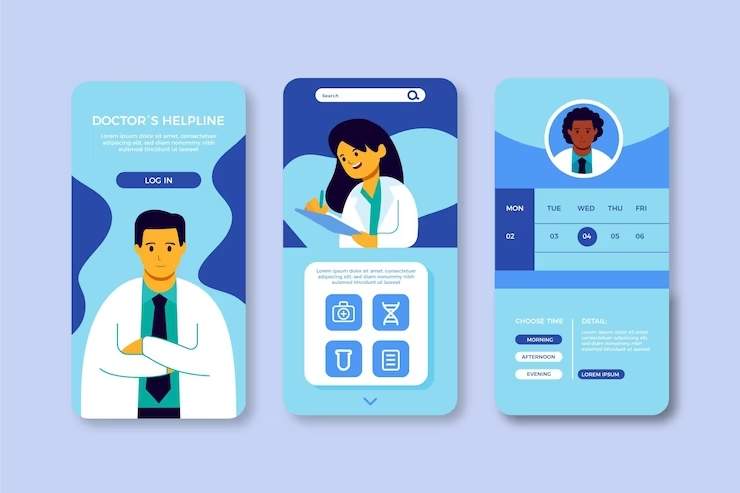
A Guide to Navigating the Digital Era with Kids
Intro
In this rapidly evolving digital era, where technology has become an integral part of our daily lives, navigating the digital landscape with our children can be exciting and challenging. As parents, guardians, or caregivers, we are tasked with striking a delicate balance between embracing the potential of digital tools and ensuring our children’s safety and well-being online.
This blog post aims to equip you with the knowledge, insights, and practical strategies necessary to navigate this journey confidently. From understanding the latest digital trends to fostering healthy tech habits and promoting responsible online behaviour, this guide offers a roadmap to help you create a positive and enriching digital experience for your children while strengthening the bonds of trust and communication. Let’s embark on this enlightening exploration together, embracing the digital era with mindfulness and empowerment for the future generation.
What we need to do
You must adopt new methods and strategies to be a good parent in the digital age. The first one is setting boundaries to using tech and spending time online. What parents often forget is to model their behaviour. Kids copy what they see their parents doing. You shouldn’t forget to introduce the concept of online safety and encourage critical thinking.
Moreover, you should, together with your kids, work on creating a healthy relationship with technology. However, you should constantly monitor social media usage and protect your kids proactively. You should keep communication open at all times.
- Set boundaries
When raising tech-savvy kids, we, as modern parents, need to set clear boundaries. These boundaries refer to screen time, the types of content kids watch, and where and when they can use their gadgets and devices. You also need to disclose the consequences for breaking those clearly set boundaries. Having boundaries from the very start is essential, as kids don’t understand time and what’s right and wrong when they are young. You need to teach them that through rules and boundaries. You also can’t forbid them to use their devices and the internet, as that will create technologically illiterate kids who will grow into such adults. This is not advisable, as we rely more on tech even today.
- Model responsible digital behaviour
You probably noticed how kids copy everything they see you doing. The same is true for the times and manner you use your phone. For example, if they see you scrolling on your phone aimlessly for hours, they will probably think that is normal and do it too. And if you use your phone to find some relevant information, such as daycare near me, your kids will also figure out they can use their phones and find out something they are interested in. They can find some crafts to make, things to draw, etc.
- Introduce the concept of online safety
Introducing the concept of online safety is vital in raising responsible and tech-savvy kids. We need to teach our children how to behave online, what the potential online threats are, and how to handle cyberbullying, which is a common occurrence nowadays. Kids must also learn to create strong passwords and share personal information online. Things they learn as young will remain part of their personality when they are older. Make sure that you teach them these things. Don’t hesitate to repeat yourself – kids need that.
- Encourage critical thinking
Besides being careful online, you should teach your kids another vital life skill – critical thinking. At a certain age, when they become aware of the world around them, you should start teaching them to evaluate situations on their own. For starters, you can give them some simple but realistic situations, and they can tell you what they would do. That way, you will see how they think and in what direction. They should learn to make sound judgements, generally in life and online.
- Work on creating a healthy relationship with technology
Ultimately, cultivating a positive rapport with technology is paramount. It is crucial to assist our children in recognising that technology serves as a tool and should not be seen as a substitute for human connection. Encouraging them to engage in offline pursuits like sports, hobbies, and cherished moments with loved ones can further reinforce this understanding. By doing so, we foster a balanced and healthy approach to their digital experiences while valuing the significance of real-life interactions. There should always be a balance.
- Monitor social media use
Even though you feel like you’ve done an excellent job teaching your kids about the dangers of the online world, it’s never a mistake to be extra cautious. You be extra cautious by monitoring your kid’s social media use. Peer pressure is still present today, perhaps even worse than before. So, kids might be tempted to do all kinds of things on/for social media. You shouldn’t be too rigid, either, and you should try to understand today’s world in the eyes of kids. However, you shouldn’t tolerate all of it – you should make a personal call on what is okay and what not.
- Be proactive in protecting your children
We should always be proactive when it comes to protecting our kids. You can do that in several ways by staying one step ahead. One way to do it is through parental control. Take advantage of parental controls and keep informed about current digital trends and potential risks to safeguard your child actively. Consider enrolling in newsletters provided by reputable tech and online safety platforms or becoming a part of digital parenting communities to gain insights from the experiences of others. This proactive approach will help you protect your child and stay ahead in the digital landscape.
- Maintain open communication
You should always maintain open communication to foster a healthy relationship with your kids. Your kids should always be able to talk to you about anything. In that way, you can prevent may bad things from happening.
Raising kids has always been one of the most challenging jobs in the world, and it still remains, even with all the tech help we have nowadays. Be present in your kids’ lives and teach them how to be tech-savvy and responsible young people.
















